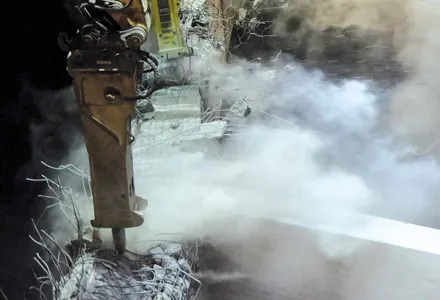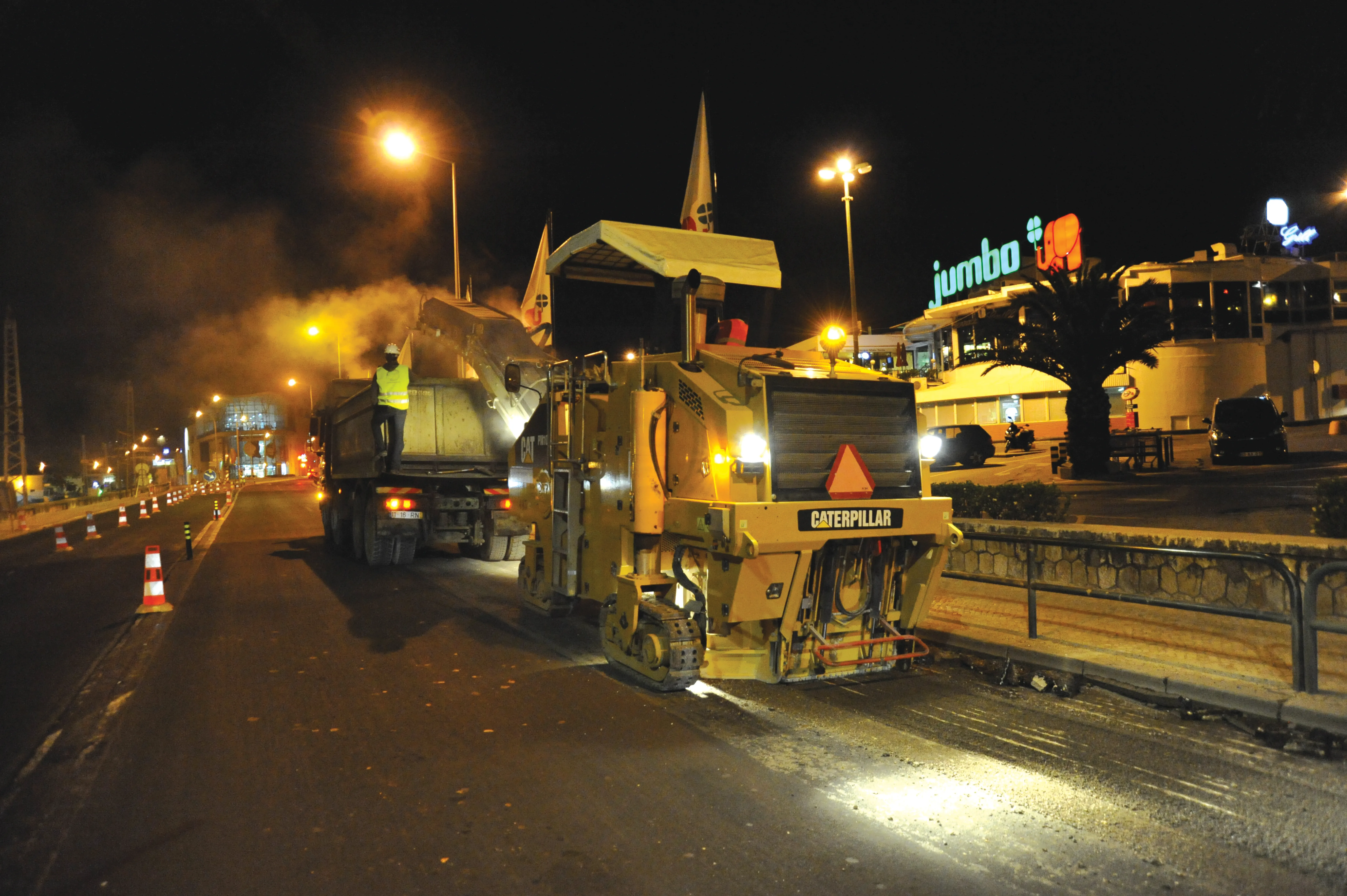Contractor Bechtel has worked with Network Rail to complete a major road bridge upgrade in the UK. A construction team worked 104 hours consecutively to replace the bridge, located at Reading Station.
March 21, 2012
Read time: 3 mins
Contractor 4138 Bechtel has worked with 4139 Network Rail to complete a major road bridge upgrade in the UK. A construction team worked 104 hours consecutively to replace the bridge, located at Reading Station.
The work forms part of the Reading Station Area Redevelopment project in England and involved installing a new bridge at Cow Lane.
The project was carried out within a tight time frame of 104 hours while the Reading West Curve rail line was taken out of commission for the work. The task of replacing Cow Lane Bridge started at 5pm on December 24th, when the rail freight line above was closed so that demolition of the old 6m span bridge could take place.
In the evening of December 26th, a self-propelled modular transporter lifted the new 14m span, reinforced concrete bridge into place. This led to the on time hand back to operations of the Reading Western Curve.
The bridge move was similar to the Caversham Bridge deck lift delivered by Bechtel, Network Rail, and contractors in 2010. However, in this case, the task was even more complex as instead of the new bridge being moved on site in pieces, here the deck, abutment, wing walls and anchor blocks were lifted as a single, complete 1,600tonne unit. More than 270 people worked around the clock to complete the work on time and to ensure that on 27th December, trains could run as scheduled. “As we were moving a whole bridge into place there was no margin for error. This was a complex task and the results are testimony to what can be achieved through collaboration in the rail industry and with its partners,” said Wayne Chin, implementation director, Bechtel. The bridge replacement is part of Network Rail’s £850 million improvement programme for Reading station and the surrounding area.
Cow Lane Bridge was a notorious bottleneck in the Reading area but the new bridge can accommodate two lanes of traffic including double decker buses, a cycle path and pavement which will help to reduce congestion. "The Cow Lane works went very well indeed. The team overcame some significant problems. When the old Cow Lane bridge was removed, the ground was found to be much more waterlogged than had been expected, and we had to spend around seven hours in extra preparation before we could start to move the new bridge. Despite this, we caught up the time and handed back the possession with four minutes to spare, which is a testament to the resourcefulness and determination of the team”, said Robbie Burns, delivery director for Wales and West, Network Rail.
Additionally, during this time the Reading Station Area Redevelopment project successfully delivered substantial station works including commissioning of the southern lines new platform 4 complete with new track and signalling system, widening of existing Platform 10 and the station platform renumbering.
The work forms part of the Reading Station Area Redevelopment project in England and involved installing a new bridge at Cow Lane.
The project was carried out within a tight time frame of 104 hours while the Reading West Curve rail line was taken out of commission for the work. The task of replacing Cow Lane Bridge started at 5pm on December 24th, when the rail freight line above was closed so that demolition of the old 6m span bridge could take place.
In the evening of December 26th, a self-propelled modular transporter lifted the new 14m span, reinforced concrete bridge into place. This led to the on time hand back to operations of the Reading Western Curve.
The bridge move was similar to the Caversham Bridge deck lift delivered by Bechtel, Network Rail, and contractors in 2010. However, in this case, the task was even more complex as instead of the new bridge being moved on site in pieces, here the deck, abutment, wing walls and anchor blocks were lifted as a single, complete 1,600tonne unit. More than 270 people worked around the clock to complete the work on time and to ensure that on 27th December, trains could run as scheduled. “As we were moving a whole bridge into place there was no margin for error. This was a complex task and the results are testimony to what can be achieved through collaboration in the rail industry and with its partners,” said Wayne Chin, implementation director, Bechtel. The bridge replacement is part of Network Rail’s £850 million improvement programme for Reading station and the surrounding area.
Cow Lane Bridge was a notorious bottleneck in the Reading area but the new bridge can accommodate two lanes of traffic including double decker buses, a cycle path and pavement which will help to reduce congestion. "The Cow Lane works went very well indeed. The team overcame some significant problems. When the old Cow Lane bridge was removed, the ground was found to be much more waterlogged than had been expected, and we had to spend around seven hours in extra preparation before we could start to move the new bridge. Despite this, we caught up the time and handed back the possession with four minutes to spare, which is a testament to the resourcefulness and determination of the team”, said Robbie Burns, delivery director for Wales and West, Network Rail.
Additionally, during this time the Reading Station Area Redevelopment project successfully delivered substantial station works including commissioning of the southern lines new platform 4 complete with new track and signalling system, widening of existing Platform 10 and the station platform renumbering.








